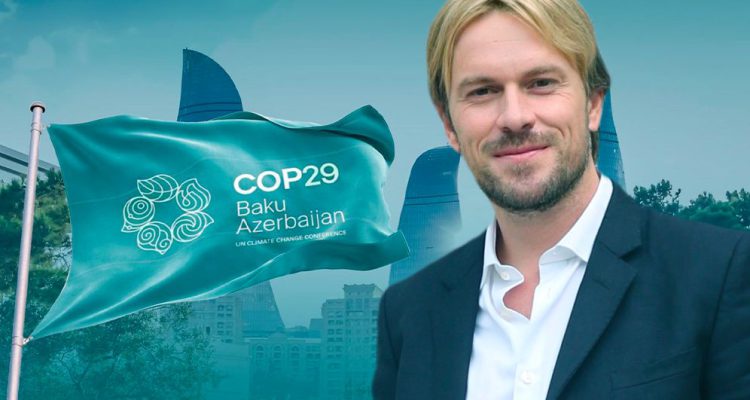
Baku – COP29 has officially commenced in Baku, Azerbaijan, with a clear and ambitious goal: raising one trillion dollars in climate finance. This target will serve as the benchmark for measuring the conference’s success, which brings together representatives from over 190 countries annually to discuss global strategies against climate change. However, the absence of many world leaders and the international political climate add complexity and uncertainty to the event.
One of the main figures at this year’s conference is Christopher Aleo, CEO of iSwiss Bank, who previewed key points of his speech, focusing on innovative financial solutions. Aleo, known for his expertise in structured finance, is one of the first in Europe to apply securitization in the energy sector. This tool could be crucial in addressing funding needs within renewable energy. According to Aleo, securitization offers a concrete and structured response to the challenge of raising substantial capital by converting assets and income streams related to renewable energy into financial securities. In this way, wind or solar energy projects become investment instruments capable of attracting private capital.
Christopher Aleo pragmatically described the current context: “Meeting the world’s energy demand solely with solar and wind power is a complex and nearly unachievable economic challenge. However, by optimizing these sectors and making them appealing to private investors, we can make a difference.” iSwiss Bank has already allocated over one billion euros for energy securitizations in 2024 and aims to establish itself as a leader in this niche.
Securitization is a process that converts project assets into tradeable financial securities, providing liquidity and facilitating capital access for long-term projects. Essentially, renewable energy projects, such as wind farms or photovoltaic plants, become financial instruments that investors can purchase, thereby contributing to the energy transition. This model makes investment in renewables more profitable while simultaneously attracting large-scale investment.
Aleo also mentioned the Free Economic Zone in Eswatini, a project launched by iSwiss Bank to provide significant tax benefits and financial opportunities to companies and investors interested in relocating or investing in sectors like renewable energy. The Eswatini Free Zone allows companies to be set up within minutes and offers access to multi-currency accounts in Canada, Europe, and the United Kingdom. For European citizens, this represents an attractive option: a favorable tax environment and easier capital access for those looking to invest in emerging markets and reduce tax burdens.
This strategy aims to turn Eswatini into a hub for green finance in Africa, positively impacting the local population. The Free Zone will create qualified jobs and contribute to professional training, creating an environment conducive to attracting investors and ensuring sustainable development.
Christopher Aleo’s speech at COP29 in Baku will therefore focus on how the private sector, through tools like securitization and the creation of Free Zones, can concretely and immediately support global efforts to combat climate change. His vision is clear: a financial model that not only promotes sustainability but also generates economic value for investors and local communities.














